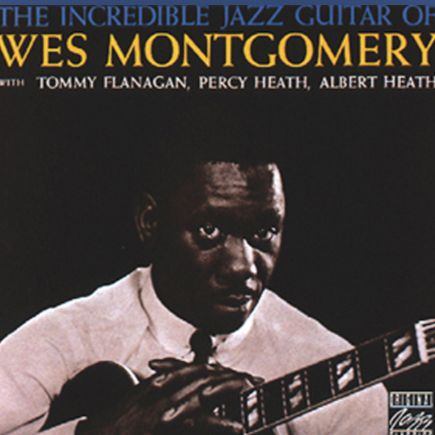Airegin: virtuosité, conscience et mémoire dans le hard bop
Origine et portée symbolique
Composée en 1954 par le saxophoniste ténor Sonny Rollins, Airegin s’impose rapidement comme une œuvre structurante du hard bop. Son titre, anagramme explicite de ‘Nigeria’, signale une réflexion assumée sur les racines africaines du jazz et sur les enjeux de réappropriation culturelle. À travers cette inversion nominale, Rollins inscrit sa démarche artistique dans une conscience historique affirmée, caractéristique de la scène new-yorkaise des années 1950, où la modernité musicale dialogue étroitement avec l’identité.
Diffusion et relectures majeures
Le morceau est enregistré une première fois en 1954 par le quintette de Miles Davis sur l’album Bags’ Groove, puis en 1956 sur Cookin’, avec Rollins au saxophone ténor. Ces versions instrumentales installent durablement Airegin dans le répertoire moderne. Par la suite, l’œuvre connaît des adaptations vocales marquantes, notamment avec Lambert, Hendricks & Ross en 1958, puis avec The Manhattan Transfer en 1985, sur des paroles signées Jon Hendricks, confirmant la plasticité du matériau original.
Exigence musicale et héritage
Sur le plan musical, Airegin se distingue par une architecture harmonique dense et un tempo rapide, exigeant une maîtrise technique élevée et un sens aigu de l’improvisation. La mélodie, construite en phrases incisives, met à l’épreuve précision rythmique et articulation, notamment lors des échanges collectifs. Mais au-delà de la virtuosité, Airegin affirme une esthétique où performance instrumentale et conscience culturelle se rejoignent. Elle demeure aujourd’hui un passage obligé du répertoire hard bop.
Wes Montgomery, virtuosité et élégance en mouvement
Enregistrée le 26 janvier 1960 à New York pour l’album The Incredible Jazz Guitar of Wes Montgomery, la version de Airegin illustre avec éclat la maîtrise technique et la musicalité profonde du guitariste. Accompagné par Tommy Flanagan au piano, Percy Heath à la basse et Albert Heath à la batterie, Montgomery y déploie un art du phrasé et de la construction mélodique qui conjugue rigueur et liberté, clarté et intensité.
Montgomery, sans jamais chercher à rivaliser avec la fougue des saxophonistes de l’époque, aborde la pièce avec une autorité tranquille. Son toucher velouté, obtenu grâce à l’usage du pouce plutôt que du médiator, adoucit la ligne sans en atténuer la vigueur. Le résultat est un équilibre rare entre la précision du discours et la chaleur du son.
Tommy Flanagan apporte une élégance aérienne qui soutient la fluidité du jeu de Montgomery. Percy Heath et Albert Heath forment une section rythmique d’une cohésion exemplaire: la basse, ferme et chantante, s’imbrique dans la pulsation souple et réactive de la batterie, créant un cadre idéal pour les échanges.
Airegin: virtuosismo, conciencia y memoria en el hard bop
Origen y alcance simbólico
Compuesta en 1954 por el saxofonista tenor Sonny Rollins, Airegin se impone rápidamente como una obra clave del hard bop. Su título, anagrama explícito de ‘Nigeria’, señala una reflexión consciente sobre las raíces africanas del jazz y los procesos de reapropiación cultural. Mediante esta inversión nominal, Rollins inscribe su enfoque artístico en una conciencia histórica afirmada, propia de la escena neoyorquina de los años cincuenta, donde la modernidad musical dialoga estrechamente con la identidad.
Difusión y relecturas destacadas
El tema se graba por primera vez en 1954 por el quinteto de Miles Davis en Bags’ Groove, y nuevamente en 1956 en Cookin’, con Rollins al saxo tenor. Estas versiones instrumentales consolidan Airegin dentro del repertorio moderno. Posteriormente, la obra conoce adaptaciones vocales significativas, especialmente con Lambert, Hendricks & Ross en 1958 y con The Manhattan Transfer en 1985, con letras de Jon Hendricks, confirmando la flexibilidad del material original.
Exigencia musical y legado
En lo musical, Airegin se distingue por una arquitectura armónica densa y un tempo rápido, que exigen gran dominio técnico y agudo sentido de la improvisación. La melodía, construida en frases incisivas, pone a prueba la precisión rítmica y la articulación. Más allá del virtuosismo, la pieza afirma una estética donde la ejecución instrumental y la conciencia cultural convergen, manteniéndose como referencia esencial del hard bop.
Wes Montgomery, virtuosidad y elegancia en movimiento
Grabada el 26 de enero de 1960 en Nueva York para el álbum The Incredible Jazz Guitar of Wes Montgomery, la versión de Airegin ilustra con brillantez la maestría técnica y la profunda musicalidad del guitarrista. Acompañado por Tommy Flanagan al piano, Percy Heath al contrabajo y Albert Heath a la batería, Montgomery despliega un arte del fraseo y de la construcción melódica que combina rigor y libertad, claridad e intensidad.
Sin intentar competir con el ímpetu de los saxofonistas de su época, Montgomery aborda la pieza con una autoridad serena. Su toque aterciopelado, logrado gracias al uso del pulgar en lugar del plectro, suaviza la línea sin restarle energía. El resultado es un equilibrio raro entre la precisión del discurso y la calidez del sonido.
Tommy Flanagan aporta una elegancia aérea que sostiene la fluidez del juego de Montgomery. Percy Heath y Albert Heath forman una sección rítmica de cohesión ejemplar: el contrabajo, firme y melódico, se entrelaza con la pulsación flexible y reactiva de la batería, creando un marco ideal para el intercambio musical.
Airegin: virtuosismo, coscienza e memoria nell’hard bop
Origine e valore simbolico
Composta nel 1954 dal sassofonista tenore Sonny Rollins, Airegin si afferma rapidamente come un’opera strutturante dell’hard bop. Il titolo, anagramma esplicito di ‘Nigeria’, segnala una riflessione consapevole sulle radici africane del jazz e sui processi di riappropriazione culturale. Attraverso questa inversione nominale, Rollins colloca la propria ricerca artistica in una coscienza storica ben definita, tipica della scena newyorkese degli anni Cinquanta, dove modernità musicale e identità dialogano strettamente.
Diffusione e riletture principali
Il brano viene inciso per la prima volta nel 1954 dal quintetto di Miles Davis su Bags’ Groove, quindi nel 1956 su Cookin’, con Rollins al sax tenore. Queste versioni strumentali consolidano Airegin nel repertorio moderno. In seguito, l’opera conosce rilevanti adattamenti vocali, in particolare con Lambert, Hendricks & Ross nel 1958 e con The Manhattan Transfer nel 1985, su testi di Jon Hendricks, a conferma della sua grande adattabilità.
Esigenza musicale ed eredità
Dal punto di vista musicale, Airegin si distingue per una struttura armonica densa e un tempo rapido, che richiedono elevata padronanza tecnica e forte capacità improvvisativa. La melodia, costruita in frasi incisive, mette alla prova precisione ritmica e articolazione. Oltre al virtuosismo, il brano afferma un’estetica in cui performance strumentale e coscienza culturale si fondono, restando un riferimento imprescindibile dell’hard bop.
Wes Montgomery, virtuosità ed eleganza in movimento
Registrata il 26 gennaio 1960 a New York per l’album The Incredible Jazz Guitar of Wes Montgomery, la versione di Airegin mette in luce con splendore la padronanza tecnica e la profonda musicalità del chitarrista. Accompagnato da Tommy Flanagan al pianoforte, Percy Heath al contrabbasso e Albert Heath alla batteria, Montgomery vi dispiega un’arte del fraseggio e della costruzione melodica che unisce rigore e libertà, chiarezza e intensità.
Senza mai cercare di competere con l’impeto dei sassofonisti dell’epoca, Montgomery affronta il brano con un’autorità tranquilla. Il suo tocco vellutato, ottenuto grazie all’uso del pollice invece del plettro, addolcisce la linea senza attenuarne la forza. Il risultato è un equilibrio raro tra la precisione del discorso e il calore del suono.
Tommy Flanagan porta un’eleganza ariosa che sostiene la fluidità del gioco di Montgomery. Percy Heath e Albert Heath formano una sezione ritmica di coesione esemplare: il contrabbasso, fermo e cantabile, si intreccia con la pulsazione flessibile e reattiva della batteria, creando un contesto ideale per gli scambi improvvisativi.
Airegin: virtuosity, consciousness, and memory in hard bop
Origins and symbolic meaning
Composed in 1954 by tenor saxophonist Sonny Rollins, Airegin quickly established itself as a defining work of hard bop. Its title, an explicit anagram of ‘Nigeria’, signals a deliberate reflection on the African roots of jazz and on issues of cultural reappropriation. Through this nominal inversion, Rollins situates his artistic vision within a strong historical consciousness, characteristic of the New York scene of the 1950s, where musical modernity closely engaged with identity.
Dissemination and major reinterpretations
The piece was first recorded in 1954 by Miles Davis’s quintet on Bags’ Groove, then again in 1956 on Cookin’, with Rollins on tenor saxophone. These instrumental versions firmly established Airegin within the modern repertoire. The work later inspired notable vocal adaptations, notably by Lambert, Hendricks & Ross in 1958 and by The Manhattan Transfer in 1985, with lyrics by Jon Hendricks, confirming the flexibility of the original material.
Musical demands and legacy
Musically, Airegin is marked by a dense harmonic structure and a fast tempo, requiring high technical mastery and a sharp sense of improvisation. The melody, built from incisive phrases, challenges rhythmic precision and articulation. Beyond virtuosity, the piece asserts an aesthetic in which instrumental performance and cultural awareness converge, remaining a cornerstone of the hard bop repertoire.
Wes Montgomery, virtuosity and elegance in motion
Recorded on January 26, 1960, in New York for the album The Incredible Jazz Guitar of Wes Montgomery, the version of Airegin vividly showcases the guitarist’s technical mastery and profound musicality. Accompanied by Tommy Flanagan on piano, Percy Heath on bass, and Albert Heath on drums, Montgomery unfolds a phrasing and melodic construction that balance rigor and freedom, clarity and intensity.
Without ever attempting to match the fiery energy of the era’s saxophonists, Montgomery approaches the piece with quiet authority. His velvety touch—achieved through the use of his thumb instead of a pick—softens the line without diminishing its drive. The result is a rare balance between precision of expression and warmth of tone.
Tommy Flanagan adds an airy elegance that supports the fluidity of Montgomery’s playing. Percy Heath and Albert Heath form a rhythm section of exemplary cohesion: the bass, firm and lyrical, interlocks with the supple and responsive pulse of the drums, creating an ideal framework for musical dialogue.


